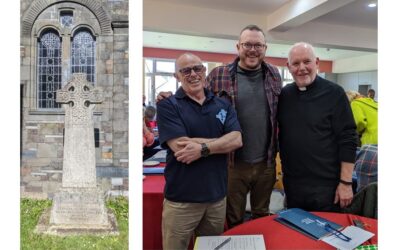The Day of Prayer for Victims and Survivors of Sexual Abuse
- Will be marked this year on Friday, 3 April 2020

Resources
- This piece was created by Caroline from Marriage & Family Life, for the members of the Let’s Be Honest Group
- https://www.cbcew.org.uk/home/events/day-of-prayer-abuse-survivors-2020/
This is a day when we think about and pray for all those impacted directly by abuse – for the victims themselves at the heart of our prayer, their families, friends, and communities. And telling you about it now gives you time to pass the information on to your family, friends, colleagues and parish communities. It gives everyone time to look at the prayer resources being made available, and to choose something that you can do, at home, or in a family setting, or in the parish. Wherever we choose to respond to this call to prayer, the resources offer an opportunity to listen to the voices of survivors and reflect on the impact of abuse.
The traumatic effects of sexual abuse cause a person to experience in mind, body and spirit all sorts of long-lasting conflicts and struggles -it can be like a battlefield in the body. Very clearly in the Gospel, Jesus stands with all victims, and calls us to co-responsibility in responding to their pain. When one part of the ‘Body of Christ’, the Church, is hurting, everyone is aware and affected. Everyone can do something towards alleviating that pain. Pope Francis says the Church must be like a field hospital in battle, ready to respond, ready to heal the wounds.
Stop and Think: How am I impacted by the scandal of sexual abuse – in the church, and in families, in institutions? What do I want to do about it? You might like to look at the prayer resources as call to action.
This year the resources for our national day of prayer have been prepared by the Let’s Be Honest group (a group that includes survivors, set up in September 2019 to resource and support the pastoral care of victims and survivors of sexual abuse as children or as adults, their families, affected parishes, and overarching church responsibility). The resources offered can be used on the day itself (3rd April) or the surrounding days. The important thing is for people to be able to acknowledge and respond in prayer at the right moment for them and their circumstances, rather than feel restricted.
Though it is hoped that survivors will be included in any local prayer initiative that may not always be possible. This should not be a barrier to using the Let’s Be Honest service. It was prepared by survivors, and through it, their voice will be heard, even in places where it has not yet been heard.
News and events from Caritas Plymouth
A faith response to Ageing.
'the only thing that counts is faith expressing itself through love” Galatians 5:6 On 20 April, over 35 people from Devon and Cornwall came together at St Cuthbert Mayne in Launceston to pray and reflect on a Christian response to an ageing society and how Catholic...
SEEDS OF HOPE- OUR RESPONSE TO CLIMATE CHANGE 20 MAY 6-8PM PLYMOUTH CATHEDRAL
LAUDATO SI WEEK EVENT - EVENING TALK AND DISCUSSION ON CARE FOR OUR COMMON HOME “There are no lasting changes without cultural changes … and there are no cultural changes without personal changes” (Laudate Deum, 70) All are welcome to an event at Plymouth Cathedral...
LAUDATO SI WEEK 19-26 MAY 24: CALLING CRAFT GROUPS AND CREATORS
LAUDATO SI WEEK EXHIBITION - CAN YOU CONTRIBUTE TO A WONDERFUL CELEBRATION? “There are no lasting changes without cultural changes … and there are no cultural changes without personal changes” (Laudate Deum, 70) Each May holds special significance for those who...




